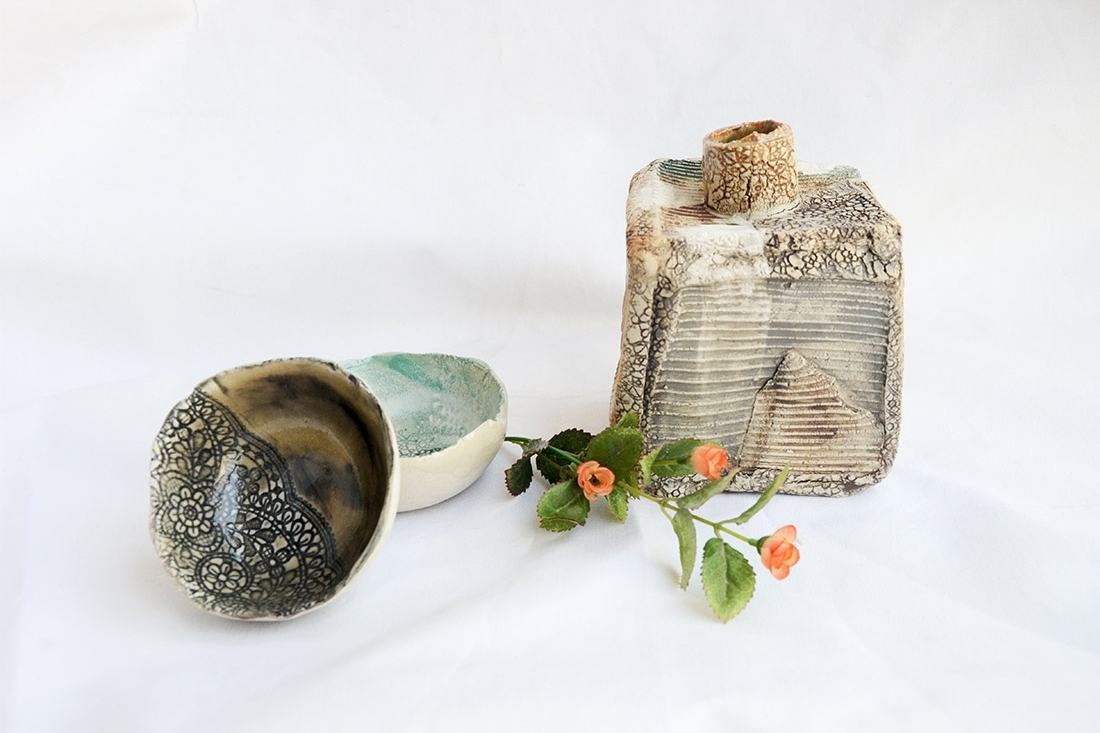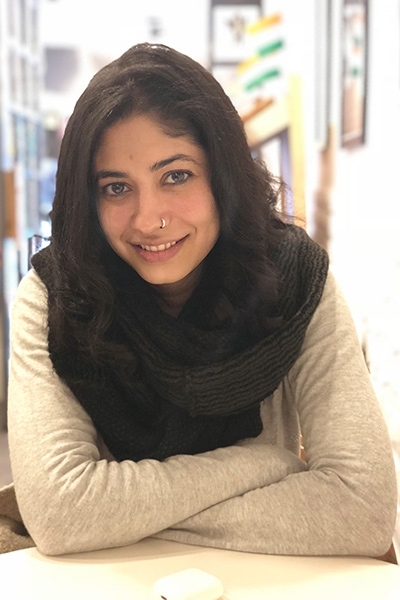

Rustic, unassuming textures, marks and patterns symbolic with nature inspire Kritika. She finds her art in its imperfections. You will find her pieces layered, playing with the concept of revealing and hiding. Kara Sabi is her vision; an idea of beauty. The unplanned nature of her work is deliberated in a way to enhance the organic look of the pieces. We dwell into her unstructured ceramic art and what makes it one of a kind.
The Artist
Eleven years, three cities, two courses and several jobs later, designer Kritika Soni realized her real calling... ceramic art. Her journey from Delhi as a regular science student to an arts student in Bangalore has been an unusual one. After much deliberation, she discovered her inclination towards the creative field by ruling out everything she didn’t want to pursue. ‘So really for me the secret to finding what I wanted to pursue was to eliminate everything I didn’t want’, Kritika adds. She soon found herself leaning toward textile studies and by 2014, had completed her Maters in textile deign from London. Till then, ceramic was just another medium of art for her.
She tells me, ‘while working on my project in London on Slow Design and Sustainability, I found myself exploring clay as a medium for the first time. After completing my Masters, I returned to India and worked for a while in the textile industry but realized ceramic was my real calling. I decided to move my focus to ceramics full time in 2016 and started Kara Sabi, a small start up where I make handcrafted functional as well as decorative stoneware items.’

'To know when to stop and finding that balance of it being minimal but not bare is very critical for me. To make something rustic yet desirable is tricky, it can fail to leave an impression.’
Wabi Sabi
Her handcrafted label is borne out of Wabi Sabi, a Japanese design philosophy surrounded with imperfect details. It believes that nothing can ever be perfect, permanent or complete and sees beauty in the old. Kara Sabi's aesthetics adhere to the principles of Wabi Sabi. Each piece is individually handmade to be cherished for its inconsistencies and flaws, and thus asks the user to find beauty in their imperfections. The aesthetic is characterised by a minimal and a subtle colour palette celebrating asymmetry, creases and joints.
As a believer of the ideology, Kritika explains ‘I intentionally like to leave the edges uneven/unfinished. I like my pieces to retain that handmade quality so they stand apart from the ones made by machine. In times when the world typically seems to be obsessing with new, shiny, pretty objects, I feel it would be very interesting to share a different perspective that deals with finding beauty in something modest and broken.’
The inspiration
As a former textile artist, Kritika brings her passion for colour, textures and layering into her work of ceramics. When I asked her about what is unique in her art she said, ‘I infuse into my process of creation, an element of surprise or a quirky attribute, so that my designs look neither forced, nor planned in advance.’
On the other hand, she is challenged with working in huge numbers as each piece at Kara Sabi is attended with meticulous handwork. She also adds that it is very easy to get carried away 'beautifying' your designs. ‘To know when to stop and finding that balance of it being minimal but not bare is very critical for me. To make something rustic yet desirable is tricky because if not done right, it can fail to leave an impression.’
Next up is..
She is currently working on expanding to larger sculptural pieces; trying out new forms and experimenting with scale. ‘I am looking forward to start collaborating with interior designers/architects and take up projects for home décor like wall art or centre pieces.’
Text Garima Gupta